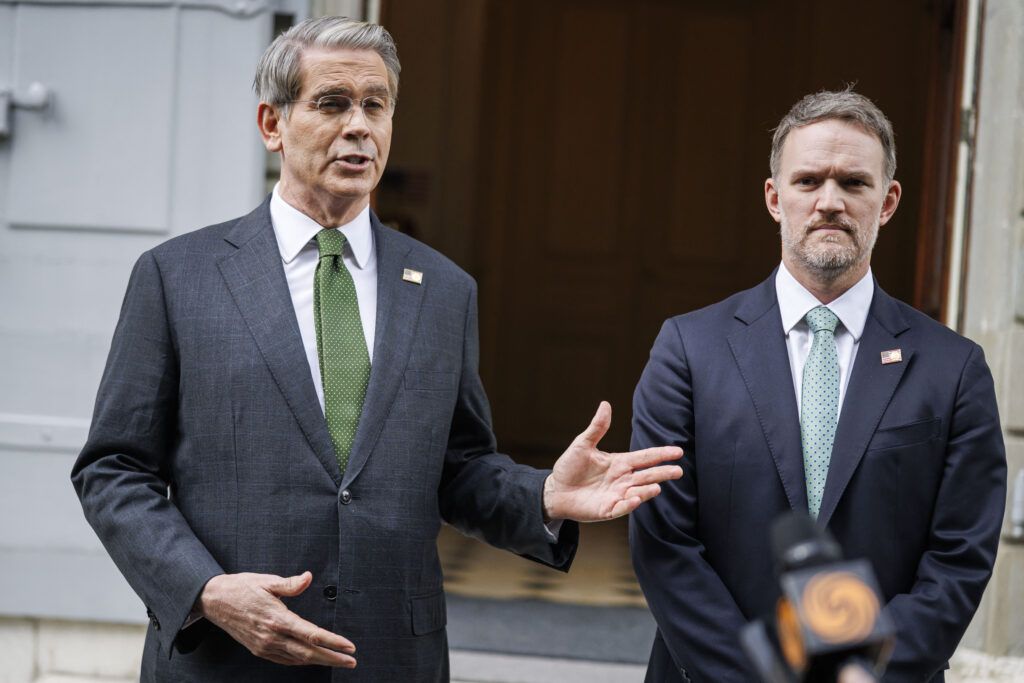Opposition spokesman on industry, investment and global logistics, Anthony Hylton
KINGSTON, Jamaica — Opposition Spokesman on Trade, Industry, Investment & Global Logistics, Anthony Hylton says the Jamaica Special Economic Zone Authority (JSEZA) will be central to generating economic growth in a future People’s National Party (PNP) Administration.
“At the heart of this transformation lay the JSEZA—not merely as a regulator, but as a catalyst for economic development, with a mandate to plan, to facilitate, and to ensure compliance with both local and global standards, including environmental, social and governance principles,” Hylton said.
He spoke to the issue during his recent contribution to the 2025/26 Sectoral Debate in the House of Representatives.
He said the PNP “will deliver a transformative National SEZ Infrastructure Plan designed not as ad hoc projects, but as an integrated national blueprint for real growth”.
Hylton told the House that the plan will identify strategically-located, investment-ready sites across Jamaica—from St Thomas to Westmoreland—ensuring regional balance, industrial clustering, and equitable participation in the logistics economy.
“These SEZs will be master-planned around contiguous or logically-networked parcels of land, supported by upgraded infrastructure—road networks, port access, utilities, digital connectivity—to drive efficiency, scale, and synergy across sectors. Whether it is agro-processing in St Elizabeth, digital services in Kingston, or light manufacturing in Clarendon, this is how we will attract high-quality investments, build resilient supply chains, and make Jamaica the logistics gateway of the Americas,” said Hylton.
The plan will see the build-out of advanced manufacturing and technology parks.
“Our proposed manufacturing and technology parks, spanning 300 to 500 acres, will anchor high-value, knowledge-intensive sectors such as ICT, electronics, green technology, and digital industries. With up to 67,600 projected jobs, and a strong emphasis on research, development, and sustainability, these parks will become launch pads for Jamaican ingenuity—turning ideas into export-ready solutions,” Hylton outlined.
He added that, “They will unlock careers for software engineers, data scientists, electronics technicians, AI developers, renewable energy specialists, robotics engineers, cybersecurity analysts, and network architects. These hubs will also cultivate roles in product design, digital marketing, 3D printing, and clean energy systems integration—preparing our workforce to compete in a modern global economy”.
The plan will also incorporate automotive innovation parks
According to Hylton, “These parks of between 500 and 600 acres will serve as industrial powerhouses—anchoring automotive parts manufacturing, aluminium-based consumer goods, and partial vehicle assembly. Seamlessly connected to modern logistics and port infrastructure, they will not only drive foreign direct investment but also create over 20,000 skilled jobs across Jamaica”.
The Opposition spokesman said these parks will support careers in automotive engineering, aluminium fabrication, industrial design, logistics coordination, quality control, welding technology, and robotics operation, among others. “We will see new opportunities for maintenance technicians, supply chain analysts, safety inspectors, and vehicle testing specialists,” Hylton said”.
He stated that “The road to economic transformation runs through these innovation parks where industry meets ambition and Jamaica takes its place in the global manufacturing race”.
There will also be electronics and appliances parks which, Hylton noted, will contribute to a ‘made-in-Jamaica manufacturing Brand’.
He explained that spanning 500 to 650 acres, these parks will power a new era of Jamaican industrial capability—manufacturing refrigerators, electrical equipment, and household appliances for local use and export.
“With up to 36,000 projected jobs, these parks will ignite sector-wide skills development and firmly position Jamaica within the global supply chain.
“These facilities will generate careers in electrical engineering, appliance assembly, circuit board design, quality assurance, machine operation, electronics testing, and product design. We will also see the rise of industrial electricians, maintenance technicians, robotics programmers, packaging specialists, and supply chain managers,” said Hylton.
He added that, “This is how we build a made-in-Jamaica manufacturing brand that stands for quality, sustainability, and innovation. It is about creating jobs not just for today—but for a generation”.
Hylton is also touting specialised industrial parks which he noted are sector-focused and future-ready.
“If we are to transform Jamaica’s economy, we must also invest boldly in industries of the future—not anchor ourselves to the past. Our specialised industrial parks are designed to catalyse innovation, attract investment, and create high-value careers across the island.
“From sports parks (300–400 acres), offering 8,000–12,000 jobs in physiotherapy, apparel design, logistics and sports medicine; creative industry parks (300–400 acres), generating 10,000–15,000 jobs in film, animation, music, and digital content; pharmaceutical and medical devices parks (550–850 acres), creating up to 25,000 jobs in biotech, clinical research, and advanced manufacturing; to aluminium innovation parks (200–400 acres), producing clean-tech components and aerospace-grade materials, adding another 6,000–9,000 skilled roles”.
“These parks are not mere facilities. They are strategic engines for export growth, youth employment, estimated to be over 200,000 direct jobs, and national resilience. Jamaica must build where the world is going,” Hylton said.










